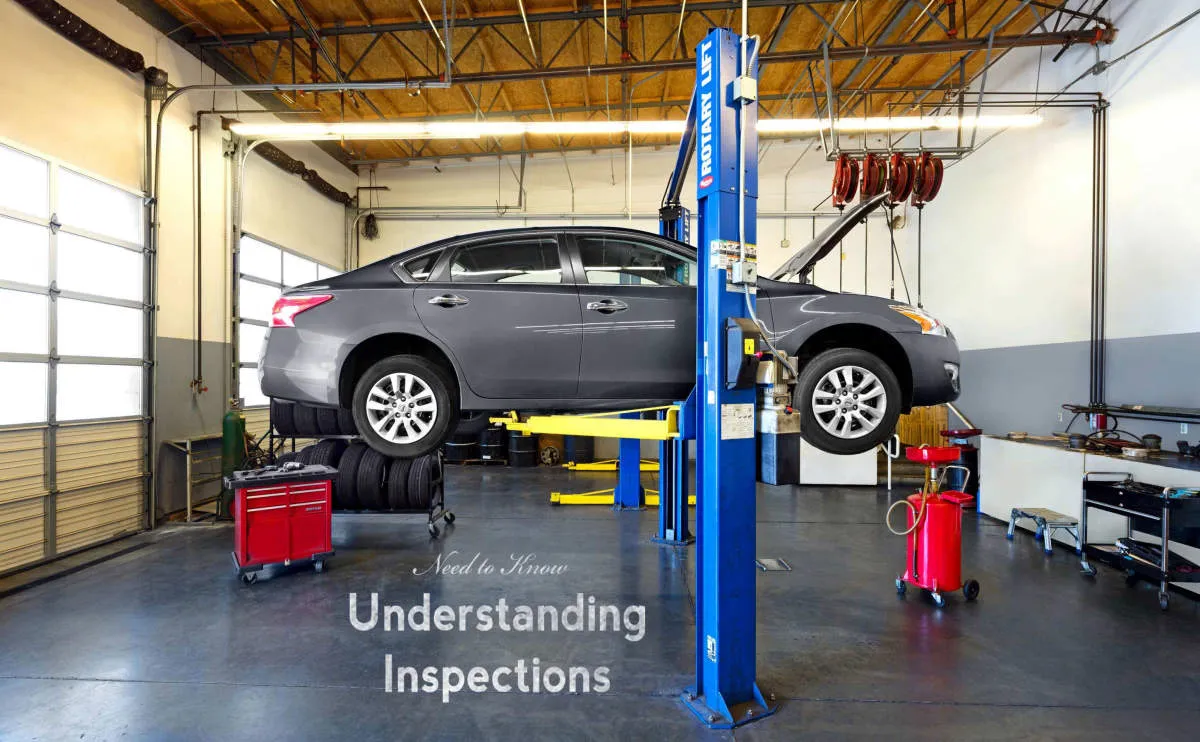Understanding Property Inspections: What Every Canadian Homebuyer Should Know
Property inspections play a crucial role in the home-buying process for Canadian buyers. Understanding these inspections is essential to making informed decisions. This article provides valuable insights into what every Canadian homebuyer should know about property inspections.
Importance of Property Inspections
Understanding Property Inspections: What Every Canadian Homebuyer Should Know
Why Are Property Inspections Important?
Property inspections play a crucial role in the homebuying process, as they provide valuable information about the condition of a property. By thoroughly inspecting a potential home, homebuyers can make informed decisions and avoid costly surprises in the future.
Identify Potential Issues
One of the primary reasons property inspections are essential is to identify potential issues that may not be apparent during a simple walk-through. Professional inspectors have the expertise to spot problems with the foundation, electrical systems, plumbing, roof, and other crucial aspects of a property.
Protect Your Investment
By conducting a property inspection, homebuyers can protect their investment. If significant issues are discovered, buyers can negotiate repairs or even reconsider their purchase. Inspections provide an opportunity for buyers to understand the true value of a property and ensure that they are making a wise investment decision.
Peace of Mind
Having a property inspection can provide peace of mind to homebuyers. Knowing the condition of a property allows buyers to plan for necessary repairs or improvements and budget accordingly. It also helps in setting realistic expectations and avoiding future financial stress.
Qualified and Professional Inspectors
It is crucial to hire qualified and professional inspectors who adhere to industry standards. Homebuyers should research and select inspectors with a good reputation and relevant certifications. This will ensure that the inspection is comprehensive, unbiased, and meets all necessary requirements.
Conclusion
In summary, property inspections are of utmost importance for Canadian homebuyers. They provide valuable insights into a property’s condition, help identify potential issues, protect buyers’ investments, and provide peace of mind. By hiring qualified inspectors, homebuyers can make informed decisions and avoid costly surprises down the line.
Types of Property Inspections

When it comes to buying a home in Canada, property inspections are an essential step in the process. These inspections help potential homebuyers gain a better understanding of the condition and quality of a property before making a purchase. Here, we will explore the different types of property inspections that are commonly used in the Canadian real estate market.
1. General Home Inspection
A general home inspection is the most common type of property inspection. It is a thorough examination of the overall condition of the property, including its structure, systems, and components. A certified home inspector will conduct a comprehensive evaluation and provide a report detailing any issues or concerns found during the inspection.
2. Pre-Purchase Inspection
A pre-purchase inspection is typically carried out by the potential homebuyer before closing the deal. It involves a detailed assessment of the property’s condition, identifying any major defects that may impact the transaction. This inspection helps buyers make informed decisions and negotiate repairs or a lower purchase price if necessary.
3. Pest Inspection
A pest inspection focuses on identifying the presence of pests such as termites, rodents, or insects in the property. This inspection is vital, especially in areas prone to pest infestations. It helps homeowners address pest-related issues early on to prevent extensive damage and costly repairs.
4. Electrical Inspection
An electrical inspection assesses the safety and functionality of the property’s electrical system. A certified electrician inspects the wiring, outlets, circuit breakers, and other electrical components to ensure they meet the required standards. This inspection helps eliminate potential fire hazards and ensures the property is compliant with electrical codes.
5. Plumbing Inspection
A plumbing inspection examines the property’s plumbing system, including pipes, drains, fixtures, and water heaters. A licensed plumber will check for leaks, blockages, and any potential issues that could lead to water damage or costly repairs. This inspection provides buyers with a clear understanding of the plumbing system’s condition.
6. Roof Inspection
A roof inspection focuses on evaluating the condition of the property’s roof. A professional inspector will examine the roof’s structure, materials, and overall integrity. This inspection helps identify any existing or potential problems, such as leaks or damage, and provides homebuyers with essential information regarding the roof’s lifespan and potential maintenance costs.
7. Environmental Inspection
An environmental inspection is necessary for properties located in areas with potential environmental risks. It assesses factors such as soil contamination, water quality, and air pollutants. This inspection is particularly important when buying older properties or those situated near industrial areas.
It is important for Canadian homebuyers to understand that the types of inspections mentioned above can vary depending on the region, property type, and individual needs. Engaging qualified professionals for the relevant inspections can help homebuyers make informed decisions and avoid potential issues in the future.
Key Considerations for Canadian Homebuyers
When it comes to purchasing a home in Canada, there are several important factors that every buyer should consider. One of these crucial considerations is property inspections. Understanding the importance and process of property inspections can greatly benefit Canadian homebuyers and provide them with peace of mind throughout their home-buying journey.
1. Hire a Professional Inspector
It is highly recommended to hire a professional property inspector when buying a home in Canada. These inspectors are trained to identify any potential issues or concerns that may be hidden from a casual buyer’s view. Look for inspectors who are certified and have a good reputation in the industry.
2. Schedule the Inspection
Ensure that a property inspection is scheduled as part of the home-buying process. This should be done after your offer has been accepted but before the closing date. It’s vital to schedule the inspection within a reasonable timeframe to allow for any potential negotiations or adjustments to the offer, should significant issues be found.
3. Understand the Inspection Report
Once the inspection is completed, you will receive an inspection report. Take the time to thoroughly review and understand the report. It will highlight any identified problems, maintenance recommendations, and potential repairs that might be needed. This knowledge can help you make an informed decision about whether to proceed with the purchase or negotiate repairs or price adjustments.
4. Evaluate the Property’s Condition
Based on the inspection report, evaluate the overall condition of the property. Some issues may be minor and easily fixable, while others could be major structural concerns that require substantial investment. Consider the potential costs and efforts required to address and maintain the property in the long term.
5. Consider Future Renovations or Upgrades
While evaluating the property, think about any future renovations or upgrades you may want to undertake. Assess whether the property’s current condition aligns with your long-term goals. This will help you determine if the property is a good fit for your individual needs and preferences.
6. Consult with Professionals
It’s always advisable to seek advice from professionals during the home-buying process. Talk to your real estate agent, lawyer, or mortgage broker about the property inspection findings. They can guide you on the best course of action and provide insights based on their expertise.
7. Make an Informed Decision
Ultimately, the property inspection is a vital tool in making an informed decision about purchasing a home in Canada. It helps uncover any hidden issues and ensures you are aware of the property’s condition before finalizing the deal. Use the information from the inspection report to negotiate repairs, adjustments, or even reconsider your buying decision if necessary.

Posting Komentar untuk "Understanding Property Inspections: What Every Canadian Homebuyer Should Know"
Gambar ataupun video yang ada di situs ini terkadang berasal dari berbagai sumber media lain. Hak Cipta sepenuhnya dipegang oleh sumber tersebut.